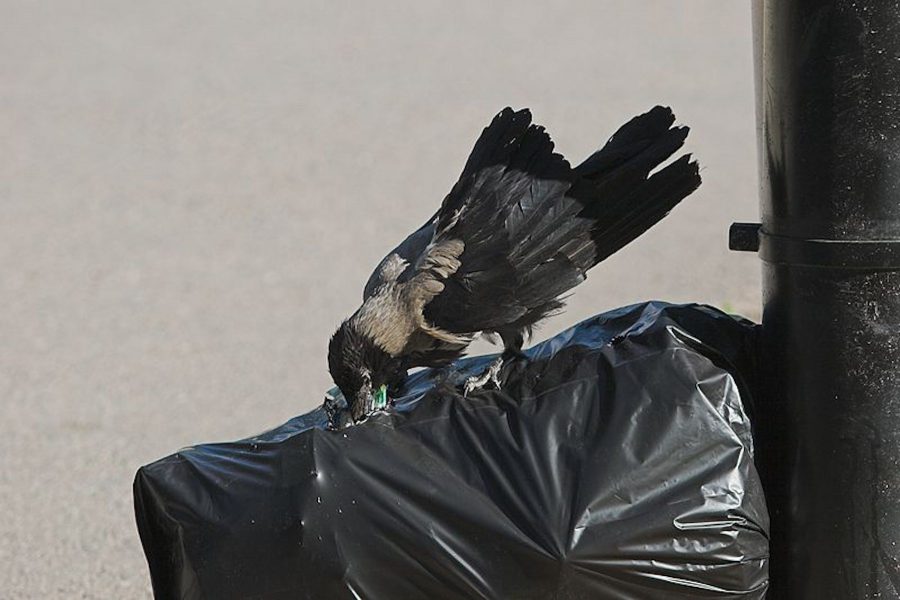“The city will always pursue you”
The wooden porch, the bird feeder in the crabapple tree, the screen door with holes in it, a warped tupperware container filled with cough syrup and cayenne pepper that I, age seven, stir carefully with a wooden spoon.
“Are you making potions?” my dad asks as I spritz the mixture with Windex.
“I’m making poison,” I say.
He nods.
The framed stock photo of a bicycle and a baguette hanging in the kitchen. Windchimes. Sade oozing from the speakers. Ant infestation. Flooded backyard. Out of nowhere, and in no order, memories from the house I grew up in are showing up again with polite and uncomfortable urgency, like freshly minted missionaries ringing the doorbell and shifting their weight in the Southern heat. My dad opens the door; the missionaries are already smiling. My little brother’s parakeets, a hermit crab I stole from the Cool Springs Galleria, the smell of wood paneling; I’ve dreamt about the house I grew up in every night since I moved to Germany. The fact that it keeps materializing in my dreams is the most consistent part of my new life here, which is why, unequivocally, I cannot visit Brandenburger Tor.
After six weeks in a new city on a new continent, I have read Homer, Plato, and Sappho, spent an entire weekend watching Orphan Black, bought three gigantic plants, hung up a picture of a strip club in Nashville in different spots on the wall until it was just right, and spent zero hours, zero minutes and zero seconds in Tiergarten. In a weird abstraction of my life from Nashville, I like to sit and drink Rewe coffee at Arnswalder Platz with the pigeons and the old men, making out bits of what the high schoolers say when they skip class.
I set down the rituals of my days in a notebook. The more mundane the better. My stream of consciousness from before and after I moved to Berlin continues more or less uninterrupted:
Coffee at Hermitage cafe, Taylor and I got lost
saw three robins, coffee
slept late (too late?)
peanut butter sandwiches for lunch
Why is everyone at this airport dressed up
I hate bob woodward
walked around the block
Found out what kind of tree is out my window!
Talked to mom
lost my lighter
saw a Berlin crow hopping across the street with a nut
Crows are dogs with feathers!
A desire to experience what I can’t at home, to add strange new things to my list, exists. It’s just crumpled somewhere behind my conscious desires to smoke cigarettes on my balcony and sleep for fifteen hours a day and my subconscious desire to revisit the house I grew up in over and over again — from over the willow tree where my favorite dog is buried, from the bike trail by shallow creek, from between the gnarled arms of the crab apple tree.
I went to the BCB library after class on Thursday looking for inspiration to write about home, loneliness, and moving across the Atlantic. I found The Best American Essays 2003 and flipped to a page at random: “Walking in cities is an accumulation of small fragments of loss…” I read, and turned the page: “…you live partly through memory, as you were meant to. And now your memories, even the memory of your resistance to the city and its constraints are all part of the city itself.” [*1]
I check the book out, slip it into my gigantic Walmart backpack and think about it all the way home. The essay warns of writers leaving home, of the poetic inevitability of return, and I wonder about returning to your hometown in dreams. I let Berlin evade me: Its monuments slip through my fingers while I read for class and memorize the creaks of my bedroom floor. This new place and I observe each other from a distance. I arrange the fragments of loss in my notebook:
The trees I see when I’m going the wrong way
Drunk men cackling on the M10 in the morning
Eating a packet of mangoes at the Rewe and forgetting my wallet
Last weekend I went to Checkpoint Charlie by accident. It was cold, close to midnight on Saturday, and raining. I was alone, looking for Döner.
“Oh shit!” I said happily, coming out of the U-Bahn station and seeing it there. I was stupidly happy, almost ecstatic to see Checkpoint Charlie sitting there, anticlimactic, hardly lit. A couple that looked like they were wrapped in one enormous scarf lit up cigarettes and walked down the street. Even though this was a great chance to bum a light, I let them pass as I stood there squinting to make out Checkpoint Charlie in the dark.
You won’t find a new country, won’t find another shore
The city will always pursue you. You will walk
the same streets, grow old in the same neighborhoods,
will turn gray in these same houses.
You will always end up in this city. Don’t hope for things elsewhere:
there is no ship for you, there is no road.
as you’ve wasted your life here, in this small corner,
you’ve destroyed it everywhere in the world.
This passage from Cavafy’s 1894 “The City” is quoted in the piece I found in The Best American Essays 2003. I’ve been copying the words down in my notebook, taking joy in it’s dire pronouncement. I don’t know if I’ll ever go back to the city where I spent most of my life. In fact, I doubt it. But as I wander, unstructured, through my new home, crows and trees and late mornings and bad coffee follow me, like dreams from the house I grew up in, unhurried ghosts reconstructing familiar streets.
—-
Notes:
[*1] Cohen, Rachel. “Lost Cities .” The Best American Essays 2003, Houghton Mifflin, 2003, pp. 38–47.

